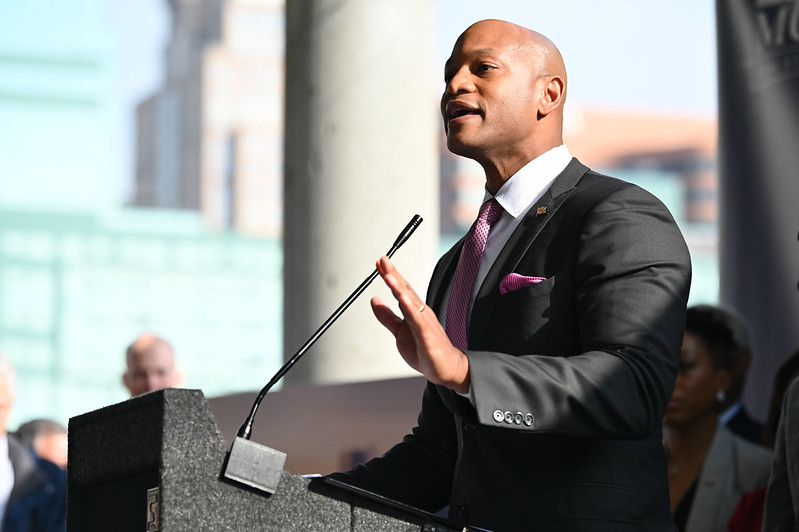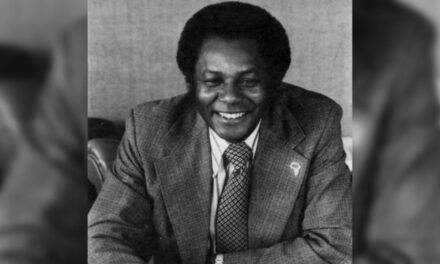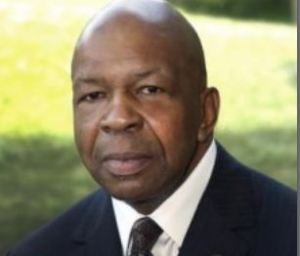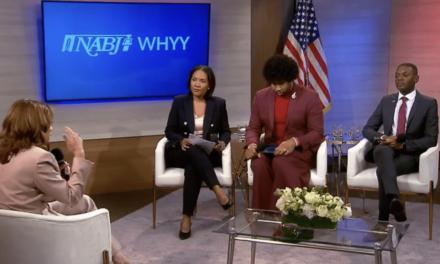By Tashi McQueen
AFRO Political Writer
tmcqueen@afro.com
Gov. Wes Moore (D) became the first Black man to lead the state of Maryland on Jan. 18, becoming only the third Black governor to be elected in U.S. history.
Moore has spent his first year making good on campaign promises and funding initiatives throughout the state.
“In year two, we will keep saying ‘yes’ to many of the priorities that we focused on in year one. ‘Yes’ means continuing the all-out assault and bipartisan assault that this state needs to make on child poverty. In 12 months together, we have lifted over 34,000 Maryland children up the next rung on the economic ladder,” said Moore, at the live-streamed 2023 Maryland Association of Counties (MACo) Winter Conference. “‘Yes,’ means elevating our state’s assets. For example, because of the investments that we have collectively made together, Baltimore is now a federal tech hub and a federal workforce hub, which will bring tens of millions of dollars into the city for infrastructure.”
Moore has also funded affordable internet access and authored and signed 10 bills through the 2023 Maryland General Assembly session, which includes a service year option for high school graduates.
In February, Moore set in motion a review of the state’s minority business enterprise (MBE) goals. He signed an executive order giving the 70 agencies affiliated with MBE 60 days to disclose their progress in meeting Maryland’s MBE procurement goal of 29 percent—a target that has not been hit in over a decade.
The Moore administration revealed that the report was the first survey of MBE outreach plans, their strategies for engaging the MBE directly and indirectly and a more in-depth request for information that has been done before in Maryland for MBE goals.
After examining each agency’s plan, the Moore administration will be able to determine which agencies are currently reaching MBE goals and then use their tactics on a larger scale with other state agencies.
Moore also invested $122 million into police departments throughout Maryland to help with reducing crime. His plans include funds to bolster the correctional system, enforce parole and probation tactics by “following the data.” Though these investments were implemented, a detailed plan has not been released, nor has Moore outlined a specific youth crime reform plan, which is a top concern for Marylanders.
Towards the end of the year, he also had to deal with an impending statewide deficit.
Moore highlighted that in the last 20 state budgets, 17 needed cuts to stay balanced.
“Since at least 2017, The Department of Legislative Services has forecasted a structural budget deficit,” he said.
Moore recognized that aid due to the COVID-19 pandemic and record highs in the stock market helped bring in tax revenue that kept the government afloat, but said that extra money in the short term is not the solution to the chronic deficit issue that the state faces.
“This year is going to be difficult, but I can tell you right now, we’re not flinching,” said Moore. “I know we enter this season of discipline. It will all be for the benefit of unlocking remarkable potential and future generations.”
January
After being sworn into office on Jan. 18, Moore held a grand People’s Ball at the Baltimore Convention Center, bringing together more than 10,000 supporters. This move showed his well-articulated support for Baltimore, promising he would stand up for the city more than his predecessor, Larry Hogan (R).
On Jan. 30, President Biden and Moore announced funding to replace the Baltimore-Potomac Tunnel through the Bipartisan Infrastructure Law. On Jan. 31, Moore announced a $3.9 million award to Coppin State University for their broadband initiatives for students and the underserved portions of the West Baltimore community.
February
On Feb. 1, Moore gave his first State of the State Address, where he recognized Black History Month and the significance of being the first Black person to provide the State of the State Address in Maryland. He also highlighted legislation he sponsored throughout the 2023 Maryland General Assembly, including affordable child care and pre-k, a service year option for high school graduates and the Maryland Educator Shortage Reduction Act of 2023.
On Feb. 3, Moore attended a public safety summit in Baltimore City alongside Maryland Attorney General Anthony Brown, Baltimore City Mayor Brandon M. Scott, Baltimore City State’s Attorney Ivan J. Bates and Morgan State University President David K. Wilson to discuss their part in the state’s public safety and potential future partnerships.
March
Moore announced that Home Chef, a meal kit company, will create about 500 jobs in Baltimore through their new distribution center at East Patapsco Avenue. On March 29, Moore committed to increasing clean energy vehicle usage by 2035 in Maryland. Moore also nominated the first Black person to lead the State police, Lt. Col. Roland L. Butler Jr., who was fully sworn in on April 11.
April
Moore began signing various bills as the Maryland General Assembly ended its 2023 session, including the ten bills he introduced, such as a service year program. Moore’s first 100 days in office was April 28. Moore announced $20 million in aid for Marylanders with COVID-19 water bill debt. Assistance was provided through 19 water systems that were awarded funding through the Water Assistance Relief Program. Moore proclaimed that Maryland would remain an abortion-access state a year after Roe V. Wade was repealed and state-wide restrictions throughout the U.S. increased.
May
In May, Moore signed hundreds of bills, including SB 858, Firearm Safety – Storage Requirement legislation, HB 186, the Victim Services Stabilization Act and HB 243, the Young Readers Program Act of 2023. Moore gave graduation speeches at several universities, including Coppin State University, Morehouse College and Howard Community College.
June
Throughout June, Moore held his first official meeting with Maryland’s federal legislators, focusing on federal funding plans for improved public safety across the state. He followed his promise to Baltimore leaders and residents that the Redline, which would connect East and West Baltimore like never before, would be reinstated.
July
Moore presented $11.4 million in state funds to the West North Avenue Development Authority (WNADA). WNADA intends to use the money from the West North Avenue Corridor, which runs between Coppin State University and the Maryland Institute College of Art —to help expand the internet across the state through $268 million federal investments in broadband infrastructure.
August
On Aug. 10, Moore announced that more jobs would come to Maryland through Early Charm, a venture studio that creates sustainable companies. The company opened a new production shop in Baltimore City, which plans to create 115 jobs in four years. Moore marked six months in office by touring Mountain Maryland with his cabinet.
Moore announced $6.3 million to improve local police recruitment and retention efforts and protect Marylanders from hate crimes through the Governor’s Office of Crime Prevention, Youth, and Victim Services. He held a town hall where he heard from Marylanders about their top concerns, including public safety, education and affordable housing.
September
Moore, the Maryland Stadium Authority and the Baltimore Orioles finalized a memorandum that keeps the Orioles in Baltimore for at least 30 years, modernizes the facility operations and helps revitalize downtown Baltimore City.
October
Moore launched the first public service year program for high school graduates, housed by the Maryland Department of Service and Civic Innovation. Program members will work at least 30 hours a week and earn $15 an hour while working with support coaches. Moore went to the Banneker-Douglass Museum to announce 2024 as the civil rights year for Maryland. Throughout the year, the museum will show programming to celebrate the milestone.
Baltimore is named a national tech hub for biotechnology and artificial intelligence (AI). In October, Biden deemed 31 communities across the United States Regional Innovation and Technology hubs through the CHIPS and Science Act.
November
Moore and Lt. Governor Aruna Miller endorsed Angela Alsobrooks to succeed Sen. Ben Cardin in 2025. Moore shined a light on transportation investments in Baltimore. Moore and Lt. Governor Aruna Miller continued their past few weeks of supporting Maryland and, specifically, Baltimore City’s workforce by signing an executive order on Nov. 17.
December
Moore introduced a portion of his 2024 legislative agenda that will significantly support military families if all bills are passed. Moore announced that there will be cuts to the Maryland Department of Transportation in fiscal year 2025 due to an expected $418 million deficit.
Tashi McQueen is a Report For America corps member.
The post Gov. Wes Moore wraps up inaugural year as first Black leader of Maryland appeared first on AFRO American Newspapers.










